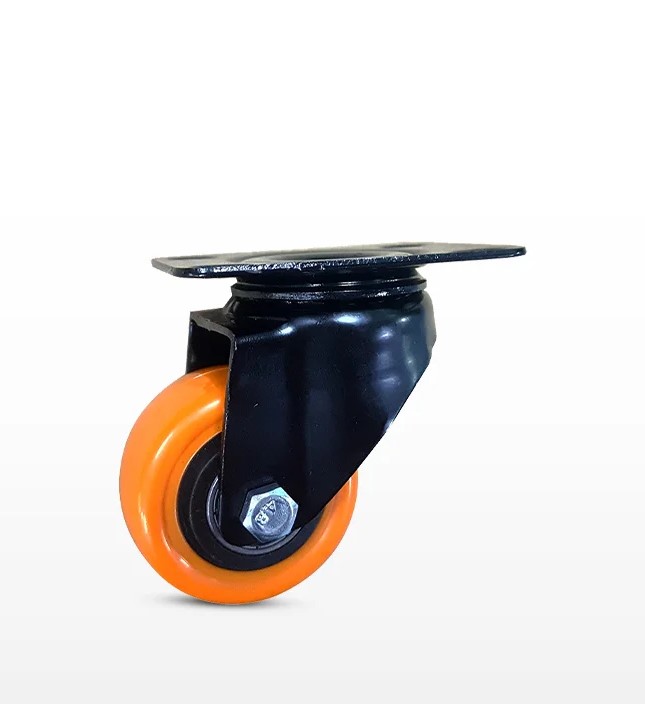In today’s industrial and commercial sectors, sustainability is a growing concern. Businesses are actively seeking eco-friendly solutions that reduce waste, energy consumption, and environmental impact. One such innovation that contributes to sustainability efforts is Polyurethane Wheels. These wheels not only enhance performance and durability but also offer significant environmental benefits compared to traditional wheel materials like rubber and metal.
This blog explores how Polyurethane Wheels support environmental sustainability through their durability, energy efficiency, recyclability, and reduced waste generation.
1. Longer Lifespan Reduces Waste
One of the most significant environmental benefits of Polyurethane Wheels is their extended lifespan. Compared to rubber or plastic wheels, polyurethane is highly resistant to wear and tear, allowing it to last much longer under heavy use.
How a Longer Lifespan Benefits the Environment:
- Less Frequent Replacements – Longer-lasting wheels mean fewer replacements, reducing manufacturing demands and resource consumption.
- Lower Waste Generation – Durable wheels contribute less to landfill waste, minimizing environmental pollution.
- Reduced Raw Material Use – Since polyurethane wheels don’t need frequent replacement, there is less demand for raw materials, helping conserve natural resources.
By choosing Polyurethane Wheels, industries can minimize their environmental footprint by reducing waste production and resource depletion.
2. Energy Efficiency in Manufacturing and Usage
The production of Polyurethane Wheels is more energy-efficient compared to traditional rubber or metal wheels. Polyurethane manufacturing requires less energy and fewer processing steps, making it a more sustainable choice.
Energy Efficiency Benefits:
- Lower Carbon Emissions – The reduced energy input in polyurethane production results in lower greenhouse gas emissions.
- Efficient Rolling Resistance – Polyurethane’s low rolling resistance means equipment using these wheels requires less energy to move, reducing fuel or electricity consumption.
- Smoother Operation – With less friction compared to rubber wheels, polyurethane minimizes energy loss during movement, improving efficiency in industrial and warehouse applications.
These energy-saving attributes make Polyurethane Wheels an environmentally responsible choice for businesses looking to improve operational efficiency while reducing their carbon footprint.
3. Reduced Noise Pollution
Noise pollution is often overlooked in sustainability discussions, but it has significant environmental and health implications. Loud industrial operations can disrupt ecosystems, contribute to worker fatigue, and increase stress levels.
How Polyurethane Wheels Help Reduce Noise Pollution:
- Quiet Operation – Unlike metal wheels, polyurethane absorbs vibrations and dampens noise, making them ideal for warehouse and factory environments.
- Lower Workplace Noise Levels – Quieter wheels create a safer and more comfortable work environment, improving employee well-being.
- Minimized Urban Noise Impact – In commercial applications, using Polyurethane Wheels on carts, trolleys, and equipment helps reduce overall city noise pollution.
By reducing noise pollution, Polyurethane Wheels contribute to healthier workplaces and quieter urban spaces.
4. Recyclability and Sustainable Disposal
Polyurethane materials can be recycled and repurposed, making them a more sustainable option compared to traditional rubber or plastic wheels. Many polyurethane manufacturers now focus on sustainable disposal practices and recycling initiatives.
Recyclability Benefits:
- Reprocessed into New Wheels – Old polyurethane wheels can be ground down and reused to manufacture new wheels, reducing waste.
- Converted into Other Products – Recycled polyurethane can be repurposed for insulation, flooring, and automotive applications.
- Eco-Friendly Disposal Options – Unlike certain plastics that end up in landfills, polyurethane materials can be handled through responsible recycling programs.
Choosing Polyurethane Wheels helps businesses align with circular economy principles, reducing their overall waste impact.
5. Chemical Resistance Reduces Environmental Contamination
Industrial environments often expose wheels to harsh chemicals, solvents, and oils that can degrade materials over time. Traditional rubber wheels tend to break down when exposed to such substances, leading to leaks and contamination.
Polyurethane’s Advantage in Chemical Resistance:
- Withstands Harsh Chemicals – Polyurethane does not degrade when exposed to oil, grease, or solvents, preventing environmental contamination.
- Minimizes Toxic Leaks – Unlike rubber, which can crack and release harmful residues, polyurethane remains stable and does not leach toxins into the environment.
- Enhances Workplace Safety – By maintaining structural integrity in demanding conditions, Polyurethane Wheels reduce the risk of hazardous spills.
This resistance to chemicals makes polyurethane a more sustainable and safer option for industries that require durability and environmental responsibility.
6. Supports Sustainable Transportation and Logistics
Transportation and logistics companies are constantly looking for ways to improve efficiency and reduce their environmental impact. Polyurethane Wheels play a crucial role in achieving these goals by offering high load-bearing capacity and energy-efficient movement.
How Polyurethane Wheels Improve Transportation Sustainability:
- Lower Fuel Consumption – Smooth-rolling polyurethane wheels reduce energy demands in material handling, leading to lower fuel usage in logistics operations.
- Supports Green Warehousing – Warehouses using polyurethane wheels benefit from reduced maintenance needs and improved efficiency, aligning with eco-friendly initiatives.
- Reduces Equipment Wear and Tear – By minimizing friction and impact, polyurethane extends the lifespan of handling equipment, reducing the need for frequent replacements.
For companies prioritizing sustainability, Polyurethane Wheels are an essential component of eco-friendly logistics solutions.
7. Environmentally Friendly Alternatives to Traditional Materials
Polyurethane is an environmentally responsible alternative to materials like rubber, plastic, and metal, which have a higher environmental impact during production and disposal.
Comparison with Traditional Materials:
- Rubber Wheels – Tend to degrade faster, generating more waste and requiring frequent replacements.
- Metal Wheels – Are heavy, noisy, and require high energy consumption during manufacturing.
- Plastic Wheels – Have limited durability and often contribute to non-biodegradable waste.
By switching to Polyurethane Wheels, businesses can reduce dependence on materials with a high ecological footprint while benefiting from superior performance and durability.
Conclusion
The environmental benefits of Polyurethane Wheels make them a smart choice for businesses and industries looking to improve sustainability. Their durability, energy efficiency, recyclability, chemical resistance, and noise reduction properties contribute to a greener future. By using Polyurethane Wheels, companies can reduce waste, lower energy consumption, and support eco-friendly transportation and logistics operations.
As industries continue to focus on sustainability, adopting Polyurethane Wheels is a step toward responsible environmental practices while maintaining high performance and reliability in material handling and mobility solutions.


